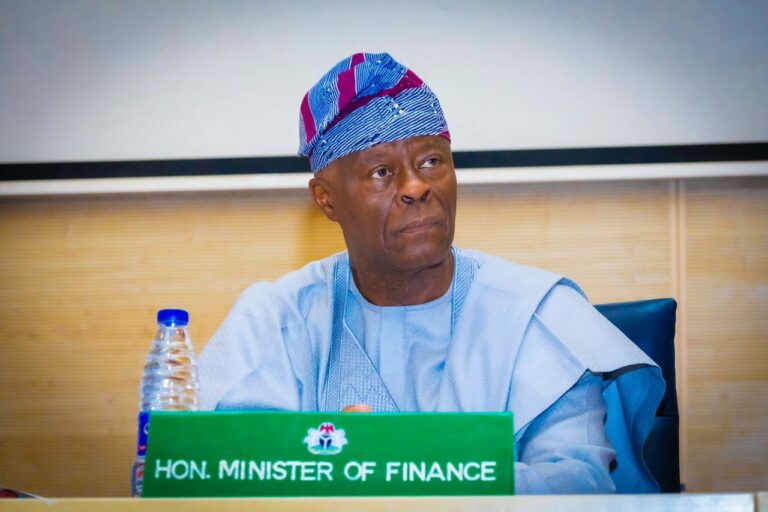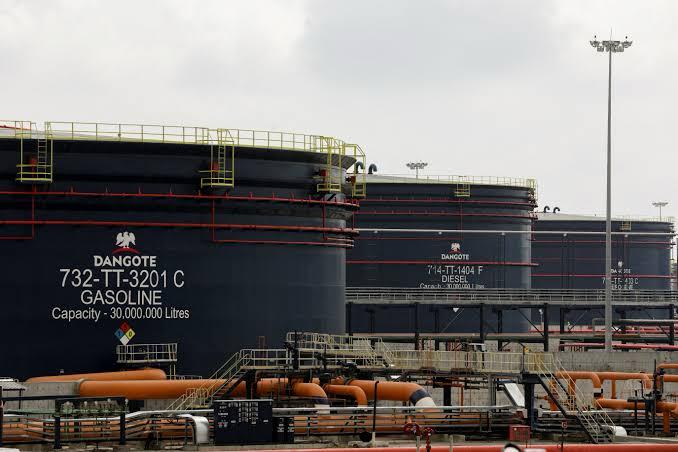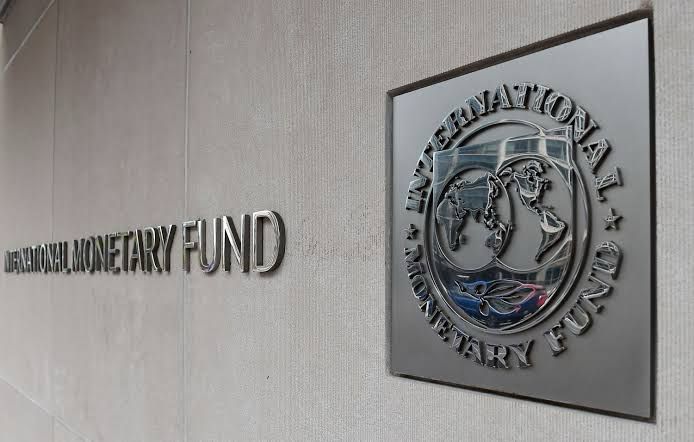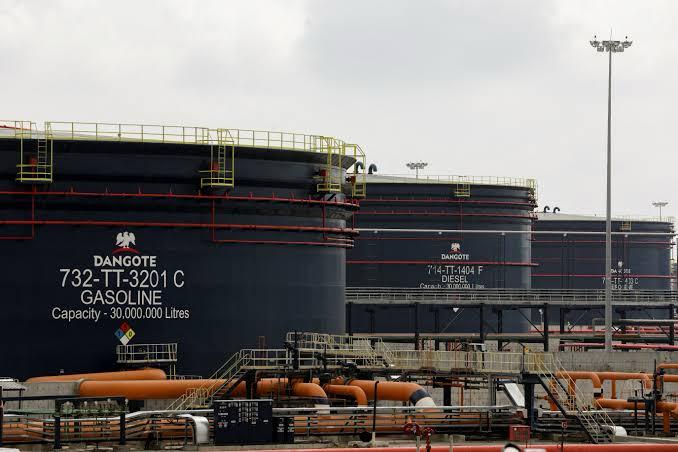Two months ago, Nigeria’s oldest lender, First Bank of Nigeria appointed Olusegun Alebiosu as its sixth managing director /CEO in this century. In this analysis, Proshare X-rays what the Risk background of the new CEO means for the Bank. The analysis projects the future and outlook for the bank by piecing together the thread of the bank’s leadership this century.
In this review of First Bank’s (FBN) leadership Journey: A Shift that Shapes the Future, Building on Achievements and Lessons of the Last Decade; we addressed the following:
1. Preamble – Leadership Restructuring and Lessons of the Last Decade.
• First Bank’s 130years of Stewardship Leadership
• First Bank’s CEO Parade: Learning Along a Rising Curve.
• In the lens of the industry: of Tier 1 Banks and the Future.

• The Leadership Changes: The New Board and its Character.
2. Alebiosu – A Risk-General at the Helm.
• Building the Future by Looking Back – Of Leadership and Succession.
• First Bank’s Alebiosu: The Making of a Risk General.
• Repairing Risk – The Art of the Deal.

3. When a Board Seeks Sustainability and Consistency. • When Succession Planning Matters: The First Bank Odyssey.
• Keeping the Bank Agile: The Art of Sustainability.
4. Closing Thoughts.
First Bank’s 130 years of Stewardship Leadership Corporate longevity signposts resilience: it does not presume a magical ability to avoid operational storms. However, it does highlight the ability to wade through occasional business turbulence and come out alive and well. Many great global companies over a hundred years old know the drill. They embrace easy and hard times with equal commitment to long-term sustainability. After 130 years in business, First Bank of Nigeria (FBN) has become a sort of national marquee symbolising the twists and turns of Nigeria’s economic fortunes.
Running a financial institution over a century old is in itself a gold standard; so FirstBank stands in a class all by its own; and so must be those who have held the responsibility of running such an institution.

In his book ‘The Living Company’, former Shell Royal Dutch Petroleum Company executive and 38-year Shell veteran Arie De Geus noted that ‘The natural average lifespan of a corporation should be as long as two or three centuries’. He argued that the dichotomy between profitability and longevity was a myth. As far as De Gues was concerned, profitable companies should be long
lived. But he notes that there is a caveat. The endemic focus of managers on the bottom line to the detriment of the human community that makes up the organisation could be a self-inflicted bullet to the head.
The research done by De Geus and his team at Shell/ Royal Dutch Petroleum Company explains why Niger ian companies like Fi rst Bank succeeded and struggled in seasons and under different managements. De Geus and colleagues identified four key characteristics of companies as old as the 130-year-old First Bank of Nigeria. The characteristics were:
· Environmental Sensitivity and Cohesion;
· Sense of Identity;

· Tolerance; and
· Conservativeness in Financing.
In First Bank’s corporate sojourn, these characteristics have evolved in different shades under separate Chief Executive Officers (CEOs). We attempt a brief interrogation below.
First Bank’s CEO Parade: Learning Along a Rising Performance Curve
FBN’s leadership parade has seen some exceptional group of managers and directors with several inspirational products, and others that formed part of their learning and development as an institution. The 130-year-old bank has gone through cycles of resilience turned into islands of achievements and in some cases, oasis of reflections. More recently, the bank has seen a steady and firm resurgence of its operating strength with a lower Cost to Income ratio (CIR), shrinking Non-Performing Loan ratio (NPL), and smaller Cost of Risk (CoR). Admittedly, this has not been without ‘legacy’ corporate governance hiccups, but the uncharacteristic disruptions have been handled professionally and maturely, in the main. (see Illustration 1)
Illustration 1:
FBN, which represents 95% of FBNH’s asset size since it transitioned to a Holdco structure, has had five CEOs with different management styles over the last two decades, starting with Bernard Longe’s aspirational administration, Moyo Ajekigbe’s conservative and minimalist approach, Sanusi Lamido Sanusi’s risk focused approach, Bisi Onasanya’s proactive and aggressive administration, and finally, Adesola Adeduntan’s repair, rework and re-growth strategy. By the end of the Adeduntan’s era, the bank has shown a significant recovery from the previous high cost to-income ratio (CIR), low capital adequacy ratio (CAR), and bloated non-performing loans (NPLs), which enabled him to restore the Bank’s international credit rating to the same level as those of the other members of FUGAZ and Nigeria. Furthermore, the ROE and market capitalization of the Bank reached unprecedented levels that have never been achieved before.
As of FY 2023, the Group’s CIR and NPL ratios declined significantly and compared favourably with regulatory expectations and industry benchmarks under the Adeduntan-led management. The Bank, during this period,
pioneered agency banking and achieved strong growth with over 230,000 agents, making it the largest bank-led agency banking franchise in Nigeria and Sub-Sahara Africa (SSA), with significant growth in the contribution of the international subsidiaries to profit (~30%) that signposts the arrival of the Bank as a truly ‘multinational company’, exponential growth in market capitalization (>10X) and customer counts (4X), and a significant drop in NPL exposure with NPLs at 5% from a high of 30%.
Furthermore, the Adeduntan era would be remembered for successfully pushing the bank’s digital agenda with the launching of the Digital Innovation Laboratory and Technology Academy (the first in the industry), execution of the various digital banking initiatives that resulted in over 23 million customers being onboarded on the Bank’s digital platforms that ensured that over 90% of the customers initiated transactions are now being conducted on those digital platforms which are fondly referred to internally within the bank as ‘Brick and Click’ banking.
This period also saw the design and launching of ‘FirstDirect’, an integrated cash management and trade finance solution/platform that has digitized the banking interface between the Bank and its various corporate customers. This initiative
is credited with repositioning the bank’s corporate banking business, resulting in the award of the ‘Best Corporate Bank in Nigeria and Western Africa’ in FYs 2022, 2023 and 2024. The Adeduntan era is also credited with repositioning the bank’s Private Banking franchise and creating a Wealth Management Division.
The Adeduntan-led management equally made significant investments in information technology (IT) by redesigning the IT Architecture (from being a branch-led structure to a digital-led architecture), which paved the way for the complete revamp of the bank’s information technology (IT) infrastructure and capabilities (including personnel) that enabled the Bank to cope with the surge in transaction volume from 2bn in 2015 to over 15bn as of the end of 2023 (7.5X).
These strides offer a strong platform, on which the new Alebiosu-led management should build by rolling up its sleeves to further improve the bank’s recent performance. If the new CEO is to build a business brand of stature, he must devise a progressive and forward-looking digital framework that keeps costs low, reinterprets customer journey experiences, and operationalises the power of off-balance sheet leverage (see illustration 2).
In the Lens of the Industry: Of Tier 1 Banks and the Future
Being the oldest bank in the industry comes with its advantages, such as multiple entities/ subsidiaries, a resilient brand, and a wider local and foreign presence, which can positively influence its performance; but it does not necessarily assure dominance in the industry.
The f requent recapitalisation and industry evolution it has to contend with has created room for many fit-for-purpose and efficient banks, which should naturally fuel industry rivalry and competition. In this instance, FBN as the oldest bank is behind many of its peer banks on asset size and some other parameters/indicators. Thus, First Bank is involved in the fierce game of finding a spot among the Tier 1 Banks and a continuing fight for relevance, dominance and shareholder value/returns; one it has retained till now based on Proshare’s 2024 Tier 1 Report (see illustration 3 ).
Illustration 3:
The Leadership Changes: The New Board and Its Character
Over the last 130 years, First Bank (FBN) has been exposed to different leadership styles, systems, and structures. Regardless of approach, context and environmental realities; the different leadership have contributed to transform the bank’s operations and nudged sustained growth despite trends and economic cycles, and financial headwinds. Further, the bank has had to (like others) to manage the banking regulator’s corporate governance guidelines, circulars and directives. The culmination of both internal and external compliance issues recently led to the emergence of Ebenezer Olufowose as the Chairman of the First Bank in May 2024 after the leadership restructuring that took place in April 2024, when First Bank (FBN) Chief Executive Officer (CEO), Adesola Adeduntan’s era ended.
FBN’s erst while Chief Executive’s retirement in April 2024 was the curtain call on a three-term
tenor that made him the longest-serving CEO of the institution. FBN Holdings Plc announced the appointment of Mr. Olusegun Alebiosu as the substantive Managing Director/CEO on June 19, 2024, to bridge the gap created by the early retirement of Adeduntan. Alebiosu had earlier held the position of acting MD since April. Aside from confirming a new Managing Director, the holding company equally announced the appointment of a Deputy Managing Director (DMD), Mr Ini Ebong, and Mr Alao Olatunde Olaifa as non-executive directors (NED). The new leadership appointments at Nigeria’s oldest commercial lending institution mark the beginning of the transition to an era the industry believes signposts a transition where banking would become more important than banks.
Olusegun Alebiosu’s previous position as the Bank’s Group Chief Risk Officer and Executive Compliance Officer allowed him to work closely with Adeduntan. This hints at Alebiosu’s reign being a strategic succession move that would build upon the legacy of the last decade to create a pathway into the future. Given that Alebiosu was actively involved in governance and policy definition under Adeduntan; and they were able to work together on the dirty job of cleaning up the bank’s mountain of weak/delinquent loan assets and the hard decisions on risk governance oversight; Alebiosu is expected to start from a sure foundation, maintain and accelerate the tempo with other add-on objectives to improve Nigeria’s oldest bank’s performance.
The FBNH board, led by maverick entrepreneur Mr Femi Otedola (CON), Nnamdi Okonkwo (whose tenure comes to an end this year) as the Holdco’s chief executive, and the FBN board, led by Ebenezer Olufowose, are not likely to give any quarters on the bank’s performance. The bank’s performance indices, programmes, processes, and performance management will come under scrutiny as it seeks to wean itself off its legacy issues to position it to compete with more agile institutions. Based on hard numbers crunched, Alebiosu’s nose can and will be pushed to the grindstone and it will be the litmus test for FBN as a learning organisation to see how much its age, experience and market value has been institutionalised to deliver value (see illustration 4).
Illustration 4:
Alebiosu – A Risk-General at the Helm.
Building the Future by Looking Back – Of Leadership and Succession
With previous hands-on experience, Dr Adeduntan came fully prepared to the bank’s helm from a corporate governance-inspired situation where FBN was reeling from a unique and challenging economic and financial circumstance. The bank was under intense CBN scrutiny as it was classified as a systemically important bank (SIB) and placed under a regime of regulatory forbearance to avoid the domino impact of its underlying operating/financial weaknesses on the national banking sector. Poor-quality risk assets were destroying profitability and harming the bank’s reputation. As times changed quickly, the previous net placer of funds at the interbank market became a net borrower.
Adeduntan brought in/assembled a team that was fit for the repair, consolidation, and growth challenges. He strengthened branch coordination roles and personnel, reassessed and rebalanced the group-wide loan por t folio, including strengthening risk management oversight. Olusegun Alebiosu was a key member of the ref reshed leadership management team and indeed, a member of the ‘kitchen cabinet’.
Alebiosu: The Making of a Risk General FBN’s historical corporate governance challenges spiralled into a situation of high cost-to-income ratio (CIR), low capital adequacy ratio (CAR), and high non-performing loans (NPLs). The difficulties were related to a broad reluctance to deal with the faulty risk management architecture/practices and a certain complacency that comes with the arrogance of corporate size. Adeduntan tackled these problems frontally but was not without some of the knotty problems of his era.
A critical aspect of the new Alebiosu era is the risk management antecedents of the new CEO and the high likelihood that he would improve the lender’s non-performing loans (NPLs) ratio position from the current 5%, keep cost-to-income (CIR) ratio low and possibly expand the bank’s off
balance sheet activity, consistent with trends seen in large banks in Europe and the United States of America (USA). Recent developments involving recapitalisation, corporate efficiency and effectiveness and risk management show the complexity and huge responsibility ahead of the new CEO.
Alebiosu, who is not new to the requirements of top management leadership, has been in First Bank for eight years in the positions of Executive Director (ED), Chief Risk Officer (CRO) and Executive Compliance Officer (ECO). Alebiosu has garnered a rich portfolio and vast experience in risk management, having held the position of Chief Credit Officer at the continental development finance institution, AfDB, in 2011 and First Bank for eight (8) years. This will further promote a stronger risk management control mechanism for the bank, like the Sanusi Lamido Sanusi era, an equal product of risk management training and exposure.
Before joining FBN, Alebiosu worked with UBA Plc and Coronation Merchant Bank, garnering a cumulative bank-work experience of roughly twenty-eight (28) years with cross-functional exposure to Credit Risk Management (CRM), Financial Planning and Control, Credit and Marketing, Trade, Corporate and Commercial Banking, Agriculture Financing, Oil and Gas Financing, Transportation {including Aviation and Shipping) and Project Financing.
Alebiosu holds a bachelor’s degree in industrial relations and personnel management and a master’s degree in international law and diplomacy from the University of Lagos. He obtained a master’s degree in development studies from the London School of Economics and Political Science and an Advanced Management Program (AMP) from Havard Business School. He is a member of several professional bodies, including the Institute of Chartered Accountants of Nigeria, the Nigerian Institute of Management, the Chartered Institute of Bankers of Nigeria, and the Nigerian Institute of International Affairs.
Like his predecessors, Alebiosu’s qualifications and vast experience show that he is professionally prepared for the role. However, the new CEO must make a few tough decisions to tackle insider politics, vested interests, and board dynamics; and proceed to take steps to improve the bank’s agility. To the credit of previous and current management, the CBN has fully honoured its guarantee on the exposure to entities it asked First Bank to cover – a moot point that should otherwise not be an issue, but it is worthwhile to acknowledge the inflows from the defunct Heritage Bank and operating Unity Bank.
Repairing Risk – The Art of the Deal
First Bank has had episodic challenges with the quality of its risk assets. More recently, this has been related to the size of its loan portfolio across industrial sectors. Heavy dependence and bias towards the Oil & Gas and Energy sectors at a point led the bank into a loan quality tailspin as declining international oil prices, created a front do o r to a s ignific ant inc rea s e in l o an provisioning/impairment charges, and non
performing loan ratios getting above 35% (as against the Central Bank statutory maximum of 5%). This was a problem the Adeduntan-led bank leadership tackled frontally with key lieutenants like Alebiosu (the new Managing Director). When a Board Seeks Sustainability and Consistency.
When Succession Planning Matters: The FBN Odyssey
The Board of First Bank’s Holding Company (FBNH) has had a rocky rotation in recent years and is in a sensible search for stability at both the bank and Holding company levels. Given a new ten-year Vision conceived and midwifed by Adeduntan that has positioned the Bank on the edge of a growth burst, Alebiosu, an insider and a strategic member of the superintending team that anchored the ten-year vision of the bank, appears to be fit-for-purpose, a steady hand on the corporate rudder with a sense of destination and a keen eye for gathering storms.
Alebiosu, however, would have to quickly set the compass direction for a bank ready to reassert itself and establish its credentials as the oldest lending business in Nigeria. An insider at the bank who requested anonymity noted, ‘The new boss must set sail at the crack of dawn. He needs to be in office and be in charge. Keeping the whole bank focused on shared corporate growth plans and values, which, to some extent, should help him sidestep the uglier sides of internal politicking. He observed that ‘people would be too busy meet ing KPIs than drown in petty squabbles.’
Keeping the Bank Agile : The Art of Sustainability
Corporate agility is a tough cookie, especially for companies older than a century. Older companies tend to have routines engrained in their DNA, making it difficult for them to adapt to the new realities and consumer expectations that emerge.
Our analysts note that these organisations tend to be hierarchical and possess the strengths and weaknesses of such corporations compared to thei r ‘flatter ’ and younger counterpar ts. Adeduntan recognised this problem in the last decade and struggled to keep the bank nimble. He battled with erstwhile IBM CEO Louis Gerstler’s question, ‘Can elephants dance?’
Alebiosu, too, will have to find an answer to the quest ion because the character ist ics of adaptability, agility, profitability, and integrity are at the heart of corporate sustainability.
Closing Thoughts.
FBN is walking into an era where old ways may no longer be enough. Time- tested business f rameworks will be tested, and corporate governance will no longer be a buzzword but a process that separates corporate winners from losers. FBN’s forward reality is encased in the quality of Leadership Alebiosu and his fellow boardroom executives and managers bring to the table. On this journey, creative and diligent execution (with ongoing refinements) of the 10- year vision (as modified f rom the design architecture emplaced by the former CEO with the active involvement of the current leadership), is a signpost that could take the bank to superior future performances.
The current Leadership must, therefore, work to achieve further improvement beyond and above that of Adesola Adeduntan, whose tenure is generally acknowledged to have pulled the banking gi ant f rom the br ink , and i t s management set on a strong growth trajectory. The solid Q1 ‘24 financial results of FBN Holdings which marked the end of the Adeduntan era signposts what is possible with this enduring franchise with careful and strategic management.
Experts recognise that banking is at the speed of thought, and takes no prisoners; leaving laggards in the graveyard of corporate has-beens.
Under the Alebiosu-led management, the bank would now have to be deliberate, intentional, focused and evolve further to a phoenix,
refreshed and energized to reassert its leading position amongst Tier 1 peers. This will then be basis for assessing the outcomes we review in the medium and long term.












